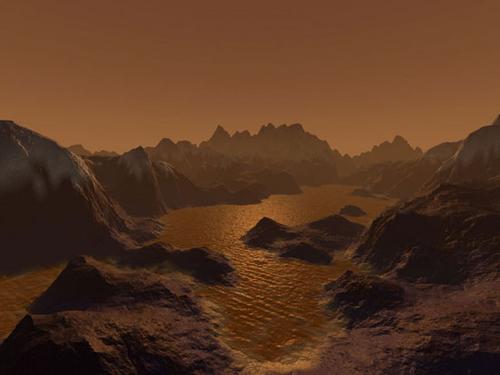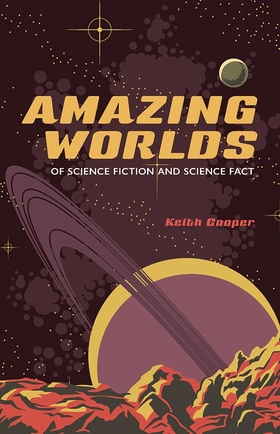An interesting piece on Nature.com discusses the possibility of life on Titan and, by extension, on other worlds where liquid water does not exist. We’ve always used the presence of water as the key indicator for life, which is why ancient Martian oceans seem so enticing — who knows what fossils may be found on the planet, or what microorganisms might still exist deep within its surface? But few scientists have argued for life on places as cold and seemingly hostile as Titan.
Nonetheless, some researchers believe we are being blindsided by the nature of our own environment, assuming it is standard-issue for life everywhere. Steven Benner (University of Florida in Gainesville) and his colleagues argue that what life may need is not so much water as a liquid solvent that can bring molecules together. Quoting from an abstract of their paper, “A review of organic chemistry suggests that life, a chemical system capable of Darwinian evolution, may exist in a wide range of environments. These include non-aqueous solvent systems at low temperatures, or even supercritical dihydrogen-helium mixtures. The only absolute requirements may be a thermodynamic disequilibrium and temperatures consistent with chemical bonding.”

In other words, exotic solvents from liquid hydrogen to liquid ammonia could come into play as staging areas for exotic life. Titan, we now know, not only has rivers and what are apparently oceans, but also compounds in the atmosphere that could create organic materials in reaction with water ice. In these terms, Titan could actually prove hospitable to life, though a form of life unlike any we’ve ever seen.
Image: Could the ethane pools of Titan contain the building blocks of life? Credit: Steven Hobbs (Brisbane, Queensland, Australia).
From the Nature.com story:
Even on Earth, many of the chemical reactions of life take place without water, catalysed by enzymes with water-repellent pockets. And many enzymes work perfectly well in the oily, water-free environment inside cell walls.
Relatively weak bonds, called hydrogen bonds, give terrestrial biomolecules, such as the DNA double helix, the crucial ability to stick together and then separate.
But water molecules form hydrogen bonds too, so groups of molecules bound by hydrogen bonds can fall apart rather easily in water. “In ethane,” says Benner, “a hypothetical form of life would be able to use hydrogen bonding more.”
You can read Philip Ball’s Titanic life may bloom without water on Nature.com. The Benner paper is Benner, Ricardo and Carrigan, “Is there a common chemical model for life in the universe?” Current Opinion in Chemical Biology, Vol. 8, pp. 672-689 (2004); an abstract can be found here.

